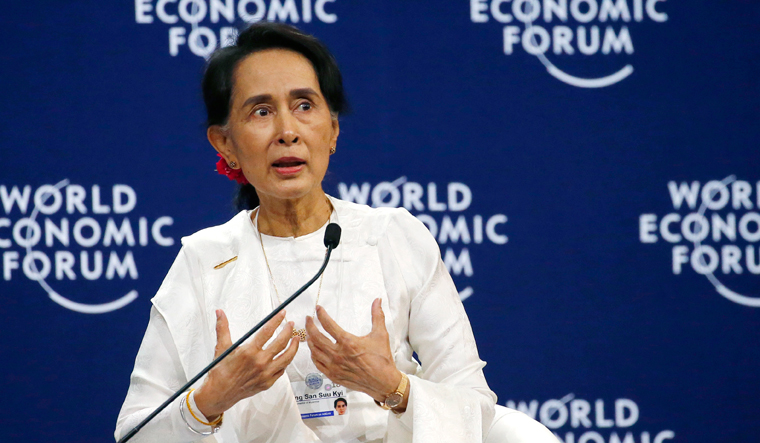Myanmar's civilian leader and Nobel peace laureate Aung San Suu Kyi on Tuesday will appear at the International Court of Justice as the Buddhist state disputes claim that it tried to exterminate minority Rohingya Muslims in a 2017 military crackdown.
The leader will defend Myanmar in The Hague against accusations of genocide.
Thousands of supporters have come out and rallied for the woman who was once hailed as a rights icon at her home, with fans even booking tours to The Hague.
Genocide being hard to prove in law could work in Suu Kyi's favour. ICJ judges have only once before ruled that genocide was committed, in the 1995 Srebrenica massacre in Bosnia.
Myanmar, however, faces several legal challenges over the fate of the Rohingya, including a probe by the International Criminal Court — a separate war crimes tribunal in The Hague — and a lawsuit in Argentina.
The case will be closely followed in Bangladesh, where around 740,000 Rohingya were forced to flee into sprawling camps by the bloody campaign in Myanmar's northwestern Rakhine state.
The 74-year-old, who was once hailed as 'The Lady' of Nobel, has had her international reputation been tarnished by her silence over the plight of the Rohingya, and her defence of the same generals who once kept her under house arrest. It has also led to calls for her to be stripped of her Nobel, while Canada revoked her honorary citizenship.
"I demand justice from the world," said Nur Karima, a Rohingya refugee whose brothers and grandparents were killed in a massacre in the village of Tula Toli in August 2017.
"The genocidal acts committed during these operations were intended to destroy the Rohingya as a group, in whole or in part, by the use of mass murder, rape and other forms of sexual violence," Gambia said in its submission to the court. The West African state of Gambia has launched the first bid to bring Myanmar to international justice over the bloodshed, accusing the southeast Asian nation of breaching the 1948 Genocide Convention.
Suu Kyi's office has said she will "defend the national interests of Myanmar" as she becomes one of the first national leaders to lead their country's defence at the court.


